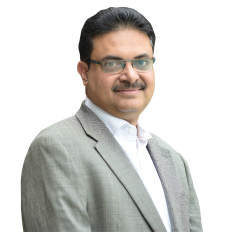Last among equals
Rising inequality is a threat to constitutional governance and democracy

For the global economy, the year gone by was an unmitigated disaster, but Covid-19 did not stop capitalism from notching up a few records. In August, Amazon founder Jeff Bezos accumulated a record net worth of $200 billion and became richer than 140 countries. The same month, Apple crossed $2 trillion in market capitalisation.
By October, the combined wealth of dollar billionaires stood at $10.2 trillion, a 70 per cent increase over the past three years. The world’s 500 richest people collectively gained $1.3 trillion this year, with Elon Musk alone adding more than $100 billion. But, for millions of ordinary people, the year was a nightmare. Thousands of migrant laborers in India had to walk hundreds of miles to their villages. The heartbreaking picture of a father holding his child and clinging on to an overcrowded truck in a desperate attempt to reach home was a stark reminder of our unequal world. A World Bank report released in October estimates that the pandemic will push 11 crore people to extreme poverty as we say goodbye to 2020.
Two recent works stand out for their excellent research and inquiry into the ideological underpinnings of economic inequality around us. French economist Thomas Piketty argues in Capital and Ideology that, for the first time in history, the poor are being blamed for their misery. They are condemned for lack of talent, diligence and virtue, while the rich are commended for their merit and entrepreneurship.

The second outstanding work is Harvard professor Michael J. Sandel’s The Tyranny of Merit: What’s Become of the Common Good. Sandel writes that Donald Trump’s victory in the 2016 US presidential elections and the vote for Brexit in the UK were angry verdicts on “decades of rising inequality and a version of globalisation that benefits those at the top but leaves ordinary citizens feeling disempowered”. He says the root cause of this popular anger is the meritocratic justification of inequality. The rich feel that they are entitled to the just rewards of their merit and the poor are left with a feeling of humiliation and resentment.
